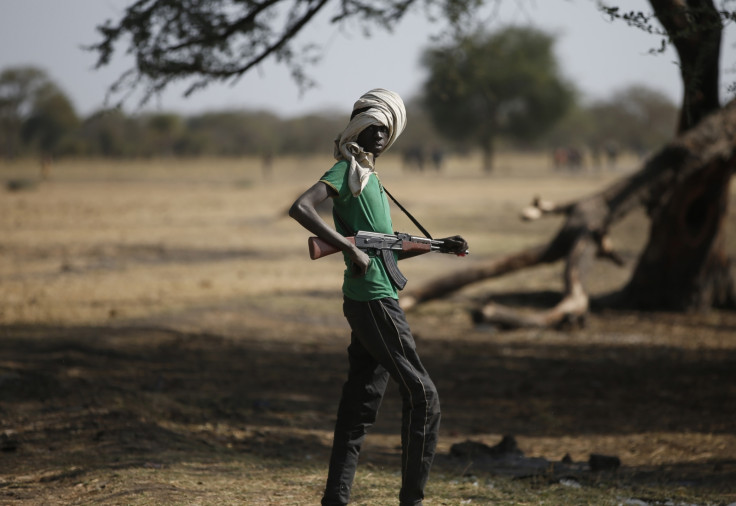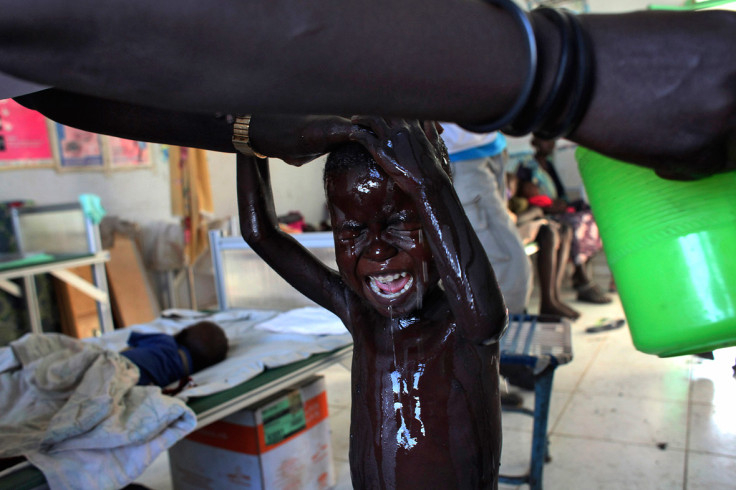South Sudan war: Leaders blamed for massacres as UN calls for arms embargo

Both the government and opposition leaders in South Sudan are to blame for massacres carried out by militias loyal to each side in a conflict that erupted in 2013, a UN panel has warned. The team monitoring the civil war said President Salva Kiir and former vice-president – now rebel leader – Riek Machar should face sanctions as they still control groups that carried out abuses against civilians.
The confidential report seen by Reuters accused senior individuals and decision makers of trying to arm militias even after the latest peace deal was signed in the capital of Juba in August 2015.
"There is clear and convincing evidence that most of the acts of violence committed during the war, including the targeting of civilians... have been directed by or undertaken with the knowledge of senior individuals at the highest levels of the government and within the opposition," said the report, which did not disclose the identity of the officials.
What sparked South Sudan conflict?
War in South Sudan erupted in 2013 when Kiir, from the Dinka ethnic group, accused Machar, from the Nuer group, of plotting a coup. The accusations sparked violence in the country, where factions loyal to Kiir and Machar engaged in tit-for-tat violence that resulted in the death of more than 10,000 civilians.
Hundreds of thousands of people have also fled the country or are internally displaced and the country's stability is further undermined by falling oil prices, as the African nation is highly dependent on oil revenues.
It is believed that some four million people are at risk of famine.
Both warring sides have already been accused of committing human rights abuses and war crimes, including extrajudicial killings, abductions, rape, torture and the use of child soldiers. The panel added that almost every attack carried out by militias in villages across the country included abductions and the use of rape as a weapon of war.
Panel co-ordinator Payton Knopf also said that since March 2015, the government-affiliated militiamen have been responsible for the majority of human rights violations committed in the country.
IBTimes UK has contacted the South Sudanese embassy in London, but had not received a comment at the time of publishing.
The UN Security Council already tried to apply sanctions on a general and a rebel commander in the past, but its attempt was blocked by Russia and Angola, who vetoed the proposal. The Russian ambassador to the UN argued the sanctions would aggravate the situation while Angola said it wanted to give both sides more time to implement the peace agreement. Venezuela also said sanctions should be put on hold.

Weapons, artillery sold to South Sudan
The report said Kiir's government spent nearly $43m (£30m) to purchase at least four Mi-24 attack helicopters in 2014 from a private Ukrainian company, while the rebels tried to acquire "shoulder-fired anti-aircraft missiles to counter the threat of attack helicopters."
The panel also warned that ACE rifles manufactured in Israel were used by the government-affiliated militia during violence carried out against Nuer civilians massacred in Juba in December 2013. A 2015 UN report already warned that Israeli weapons were being used in the conflict in South Sudan.
IBTimes UK has contacted the Israeli embassy in London and its foreign ministry for a comment on the allegations, but had not received a response at the time of publishing. Earlier in 2015, Israel told a visiting UN delegation that it had stopped supplying weapons to the Sudanese army when the war broke out.
Latest peace deal in jeopardy
As part of the latest peace deal, warring sides committed to creating a transitional government by 22 January.
However, the leaders missed the deadline as rebels opposed Kiir's decision to create 18 new states, arguing that any plan to further divide the country should be discussed after the interim government was put in place. The missed deadline is seen by many as a threat to a successful implementation of the peace deal that might worsen the ongoing violence in the nation.
Following the failure to appoint a transitional government, Machar travelled to Uganda - which has been supporting Kiir since the conflict erupted – seeking help to put an end to the war.
© Copyright IBTimes 2025. All rights reserved.






















